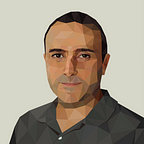Mayo Clinic includes Social Media Scholarship Activities in Academic Advancement
On Friday, Mayo Clinic’s Academic Appointments and Promotions Committee (AAPC) announced that it is integrating social media and digital activities in the criteria matrix for academic advancement. (Mayo staff can view the announcement here.)
This is a game changer for digital academics.
Now, you certainly should include your Twitter handle in your academic CV.
The moral and societal duty of an academic healthcare provider is to advance science, improve the care of his/her patients and share knowledge. A very important part of this role requires physicians to participate in public debate, responsibly influence opinion and help our patients navigate the complexities of healthcare. As Clinician Educators our job is not to create knowledge obscura, trapped in ivory towers and only accessible to the enlightened; the knowledge we create and manage needs to impact our communities.
Since the advent of social media as one of the most important arenas to impact the public and disseminate science and knowledge, hundreds of physicians are trying to occupy this space to engage patients and communities, educate public, provide free medical education, disseminate research and influence public policy. The rise of healthcare social media has been extraordinarily fast, with millions of patients and providers who interact in this virtual space with massive impact in their lives.
Mayo Clinic recognized this trend and opportunity early, establishing in 2010 what has become the Mayo Clinic Social Media Network to provide training and to help develop best practices for Mayo staff and for colleagues everywhere who want to harness these new tools for good.
Academic Promotions and Tenure Committees in academic institutions are charged with ensuring that the scholarly work of faculty impacts the academy. These committees aim to provide a promotion system rewarding the influence and significance of research, clinical care and education. The committees reward consistency and excellence.
The integration of digital and social media scholarly activities into academic promotions criteria has proven difficult, as with any other non-traditional metric. The major difficulties are related to cultural differences between traditional media (books, journals) and digital platforms (social media); the difficulty making equivalent comparisons and the ability to consistently track digital work.
Thanks to the thoughtful and thorough review of this request by Mayo Clinic’s AAPC, the organization has now provided for this integration.
I will discuss the details and specific metrics and procedures on how to incorporate digital activities in a future post, and we hope other academic medical centers will join us in recognizing this work. The metrics should be center specific depending on
- the academic profile and size of the institution,
- the mission and goals of its academic promotions committee,
- the scope of the academician (large clinical specialty vs. small technical group),
- the type of activity (healthcare education vs. patient education vs. research dissemination) and
- the platform to be used.
There is no one-size-fits-all method to do this and each institution should craft their own scheme.
We are delighted that Mayo Clinic is now incorporating social media as a part of academic appointments and promotions. This is a game changer.
Editor’s Note: Daniel Cabrera, M.D. is an emergency medicine physician at Mayo Clinic and a member of the Internal Advisory Group for the Mayo Clinic Social Media Network. With MCSMN Medical Director Farris Timimi, M.D., he also was a physician co-director for development (with Hootsuite) of Mayo’s Social Media Basics for Healthcare Certification.
Originally published at socialmedia.mayoclinic.org.
